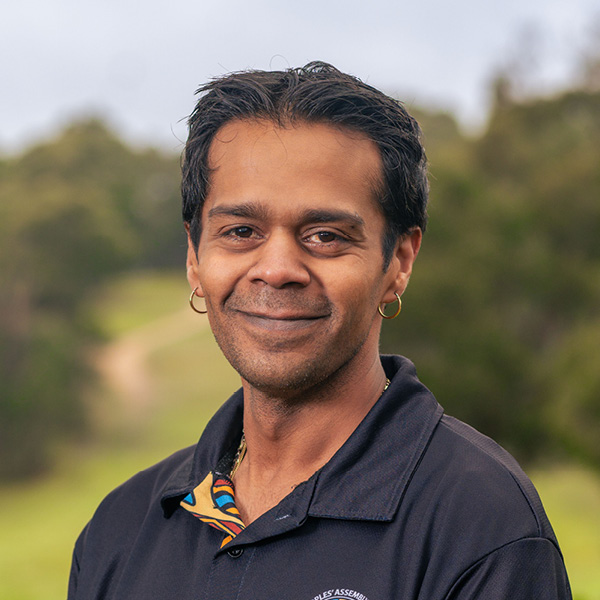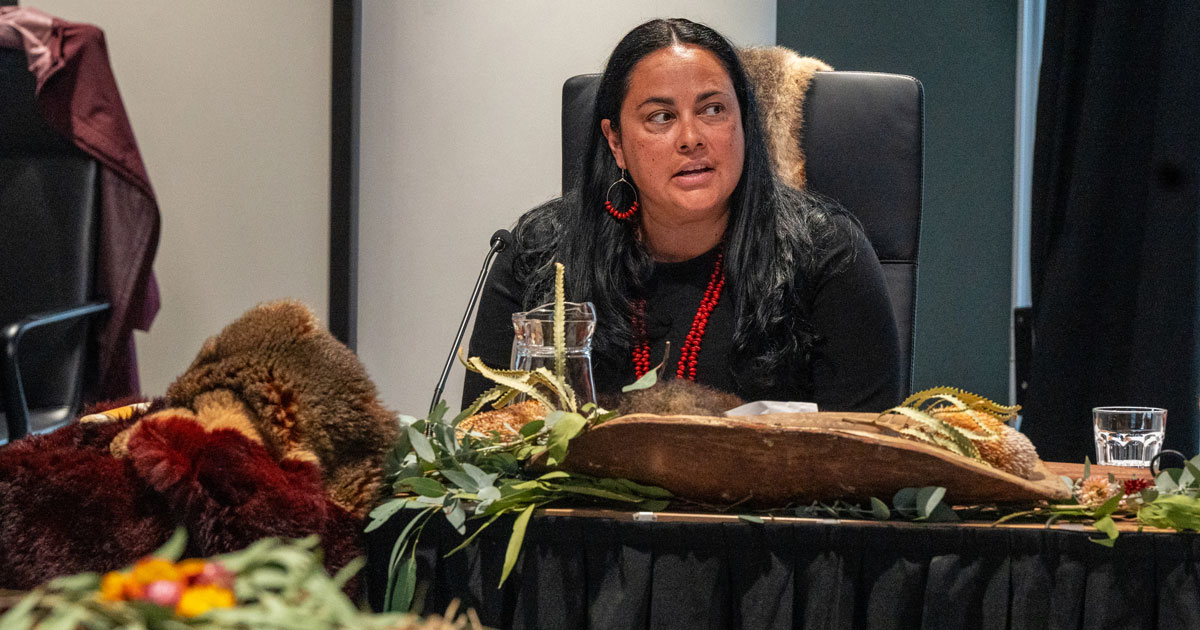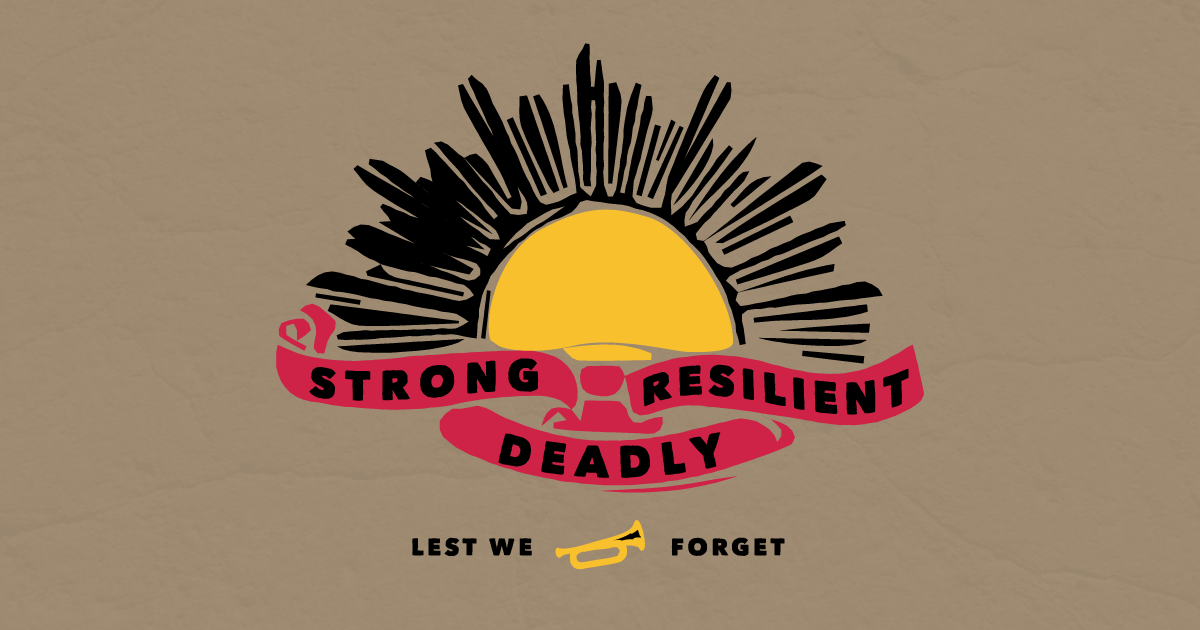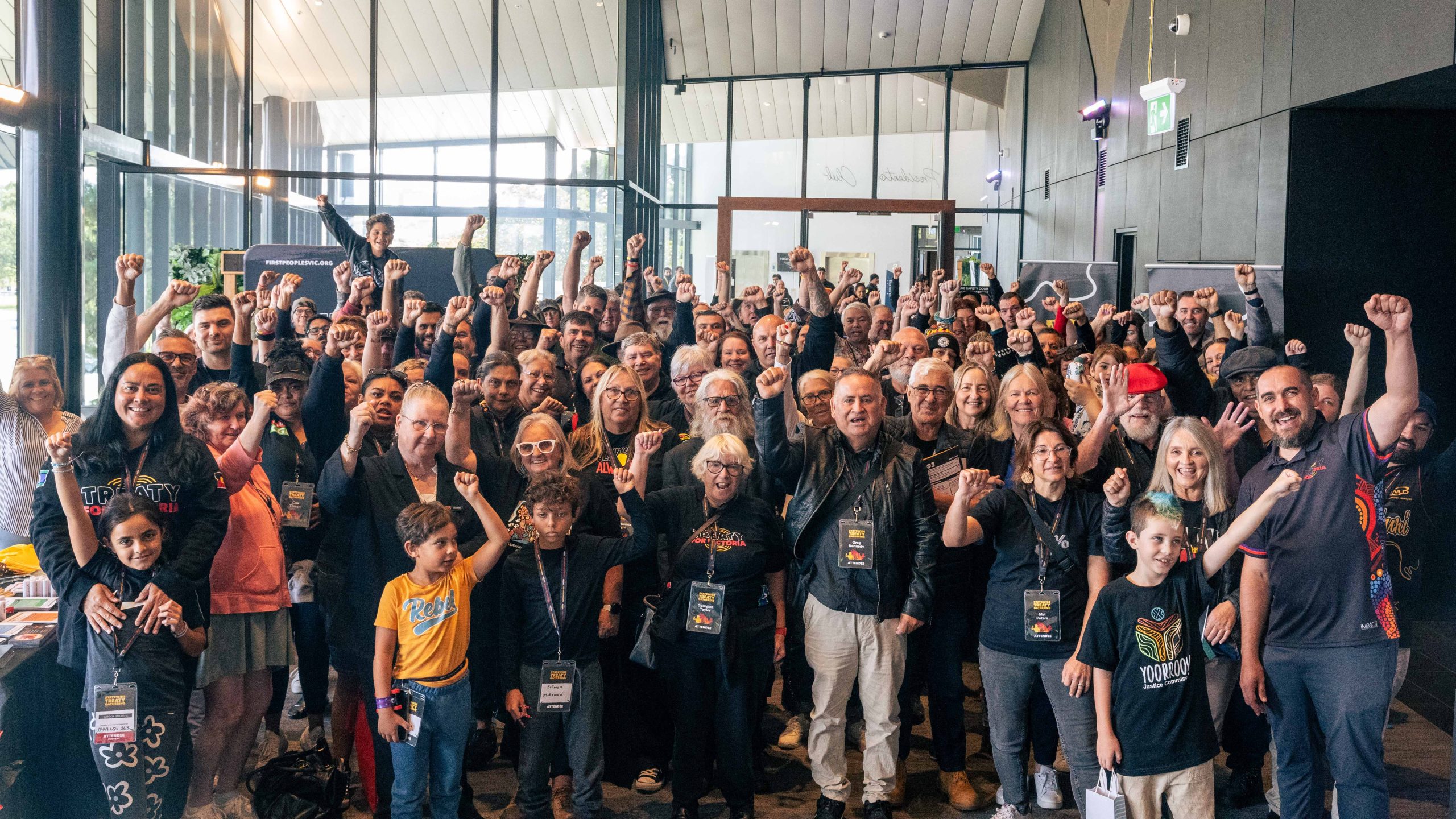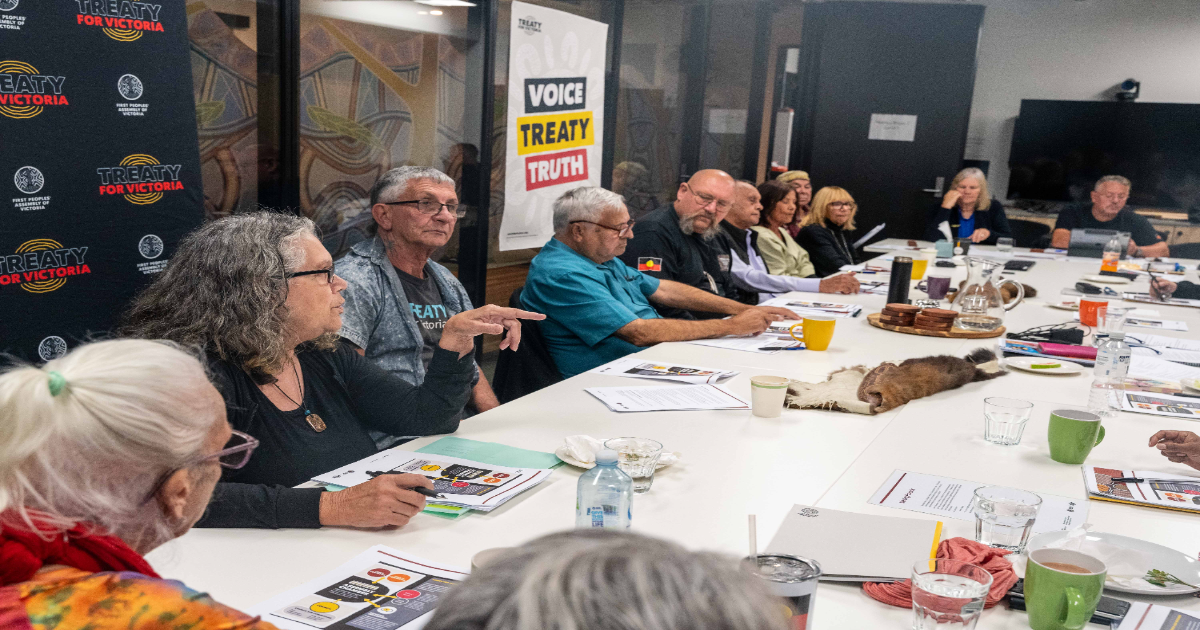We have survived and thrived in all kinds of environments and continue to fight for our rights and our place in society. Treaty isn’t about us in the present, we need to be prepared for the next generation.
The first term has been incredible. From the first meeting there has been a lot of movement and the Assembly is progressing towards establishing itself as a strong entity for Aboriginal People
We are accountable to our communities and this is why it’s important we hear your views and aspirations for the future. We cannot do a good job without our mob walking with us and guiding us on each and every step we take.
We have a prime opportunity to work together and rebuild a solid foundation towards a brand new future in Victoria.
Member Updates
March 2024 — Meeting of Assembly at Lakes Entrance
Discussion Points
- Path to Treaty Presentation Highlights:
- BGLC Elders’ involvement in Elders Voice Initiative.
- Youth Voice encourages young people’s involvement and localised activities.
- Establishment of external bodies for self-determination funds, Treaty Authority, and Treaty Negotiation Framework.
- BGLC’s role in both Statewide Treaty and Traditional Owner Treaties.
- Formation of a BGLC Treaty delegation to strengthen approach; possibility of multiple groups forming a delegation.
Concerns Raised
- Mitigation of Internal Group Offshoots:
- Assembly’s discussions on mitigating internal group splintering affecting TO groups.
- TO Treaties Commencement:
- Concerns about the start of TO Treaties by end of 2023 and Treaty Authority’s readiness.
- Aboriginal Lore, Law, and Cultural Authority:
- Role and impact in Treaty negotiations; concerns about cultural Lore being overlooked.
- Delegation Model:
- Possibility for a family to register as a delegate and how it fits with the self-determination lens.
- Negotiation Representation:
- Ensuring the right people at the negotiation table and BGLC not being the first to negotiate.
- Process for Established Groups:
- Need for clarity on established groups’ role in the Treaty process.
- Assembly’s Role and Historical Issues:
- Concerns about the Assembly’s involvement in non-intended business and the impact of historical issues on negotiations.
- State Over Individual TO Treaties Hierarchy:
- There are significant concerns regarding how the overarching Statewide Treaty framework might impact or potentially override individual Traditional Owner (TO) Treaties. The apprehension lies in the State’s authority, possibly trumping the specific agreements and stipulations laid out in individual TO Treaties, thereby undermining their autonomy and the specific needs and rights they address.
- Members raised questions about the mechanisms in place to ensure that individual TO Treaties retain their significance and are not merely subsumed under the broader Statewide Treaty agreements. This concern extends to how these individual treaties can coexist with the Statewide Treaty in a manner that respects and upholds the sovereignty and self-determination of each TO group.
- The possibility that the Statewide Treaty could overshadow or limit the scope of individual TO Treaties prompts a need for clear legal and procedural frameworks that safeguard the rights, agreements, and cultural significance embedded in these individual treaties.
- Action for the Chair & Reserved seat holder to engage with the Assembly and relevant authorities to clarify the terms under which individual TO Treaties operate within the context of the Statewide Treaty. This might include establishing a clear register or mechanism that recognises and enforces the unique provisions of individual TO Treaties alongside the Statewide framework.
- This matter is crucial for ensuring that the sovereignty and self-determination goals of TO groups are not compromised in the broader treaty negotiation process.
17 Feb 2024 FGM summary:
The WJJWJ Full Group Meeting on 17 February 2024 emphasised critical areas for Treaty negotiations. Key discussions focused on empowering Traditional Owners (TOs) with control over land and water management, acknowledging the inseparable link between land management and water resources.
“Land cannot be managed without water and the heavy privatisation of water poses problems.”
The need for reform in cultural burning practices was highlighted, advocating for a system where TOs direct burn schedules, rather than navigating bureaucratic processes.
Intellectual property rights were another focal point, with concerns over non-TO entities appropriating TO cultural heritage.
“The intellectual property rights of TOs or cultural IP is often appropriated by non-TOs claiming them because they publish the stories.”
Additionally, autonomy in health and education was discussed, with a call for these sectors to be managed according to TO cultural practices, ensuring programs align with ancestral health and education concepts.
